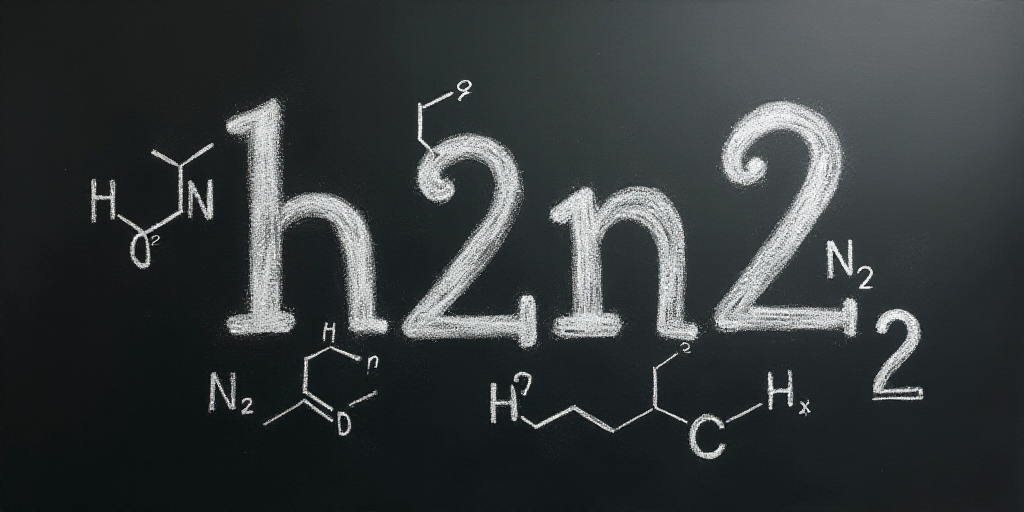The Rising Popularity of Tryptophan Supplements
There has been a surge in advertisements for tryptophan supplements, marketed to enhance mood and combat rising symptoms of depression, sleep disorders, and anxiety. However, scientific evidence does not always guarantee their effectiveness.
Why is Tryptophan Important?
Tryptophan is an essential amino acid crucial for protein production, improved blood circulation, and sleep regulation. Our bodies cannot produce it naturally, so we must obtain it through specific foods of both animal and plant origin. Foods rich in tryptophan, according to the University of Navarra, include pumpkin and sesame seeds, soy, cheddar cheese, poultry like turkey and chicken, fish such as tuna and salmon, and eggs.
Regarding tryptophan supplements, they are available over-the-counter and are generally safe to consume. However, it’s always advisable to consult a healthcare professional before taking them. They are not recommended for pregnant women, young children, individuals with kidney disease, or those taking antidepressants.
The Biological Journey of Tryptophan in Mental Health
These products are primarily used to synthesize serotonin and melatonin, two neurotransmitters that regulate mood, sleep, and appetite. Known as the “well-being hormone,” serotonin is present throughout the body, but brain-produced serotonin affects mood, improving it, concentration, and sleep.
Tryptophan’s primary raw material is tryptophan, but only about 5% of ingested amounts are used for this purpose after converting to 5-hydroxytryptophan. The rest of the amino acid, if all goes well, will transform into a metabolite called kynurenine, which then becomes quinolinic acid, a powerful neuroprotector.
Thus, tryptophan contributes to serotonin and quinolinic acid production, benefiting our emotional and neurological health. However, current scientific literature does not support its use as a supplement in all cases.
Inflammation and Other Obstacles
Under normal circumstances, this is what happens. Recent studies have found that conditions like chronic fatigue syndrome, long COVID, and certain neurodegenerative or intestinal diseases alter tryptophan conversion pathways.
One key factor might be “low-grade inflammation.” Unlike acute, rapid, and short-term inflammation, low-grade inflammation is chronic and characterized by sustained high levels of pro-inflammatory cytokines. This type of inflammation is associated with cardiometabolic diseases, autoimmune conditions, and obesity.
Firstly, in the presence of inflammation and stress, the percentage of tryptophan converting to serotonin may decrease. Lower levels of this neurotransmitter can lead to more symptoms like sadness and apathy.
Secondly, with inflammation, the IDO-1 molecule is activated. In the presence of certain pro-inflammatory cytokines (IL-6, IFN-gamma), IDO-1 can cause part of the kynurenine that should convert to beneficial quinolinic acid to instead become quinolinic acid, a neurotoxin.
In fact, a 2023 study found that in patients with long COVID, the ratio of kynurenine to tryptophan was lower than in healthy individuals. Moreover, they discovered increased conversion towards quinolinic acid.
The Crucial Role of Microbiota
Another key factor highlighted by increasing research is microbiota, essential for transforming tryptophan and other substances into necessary metabolites for maintaining our health. When our gut microorganism community is altered, healthy mechanisms are compromised, and unwanted effects may appear. Indeed, maintaining a healthy microbiota is crucial for brain health via the gut-brain axis.
Recent investigations have found that an imbalanced microbiota (dysbiosis) can contribute to chronic pain and depression due to altered tryptophan-derived metabolites. Intestinally, this amino acid also plays a significant role in regulating immune processes, controlling inflammation.
In conclusion, tryptophan is an excellent neuroprotector, but it doesn’t thrive in contexts with high inflammation and microbiota alteration.
Making Tryptophan’s Job Easier
So, how do we reduce inflammation and improve our gut microorganisms? First, consult a healthcare professional, especially if you have any medical conditions. As general advice for fostering an anti-inflammatory state, prioritize consuming fruits, vegetables, and healthy fat sources like extra virgin olive oil, avocados, and nuts.
Seasoning meals with turmeric, ginger, garlic, cinnamon, or other spices and incorporating blue fish into your diet (rich in omega-3, a potent natural anti-inflammatory) is also beneficial. Smaller fish like sardines, anchovies, or boquerones are preferable.
Lastly, adequate hydration, effective stress management, emotional health care, and ensuring good sleep hygiene are essential for overall well-being.
Exercise is Key
Physical activity plays a crucial role in reducing systemic inflammation. Exercise helps decrease body fat, with visceral fat being a significant source of inflammation. Moreover, it increases adiponectin levels, a hormone with anti-inflammatory properties that improves insulin sensitivity and helps mitigate inflammation.
Exercising on an empty stomach can also help control it, and interval training (combining high and low-intensity) has demonstrated effects in reducing low-grade inflammation.
Finally, regular physical exercise positively impacts mood through endorphin release and cortisol level reduction, favoring emotional and mental well-being.
Key Questions and Answers
- Q: What is tryptophan, and why is it important? A: Tryptophan is an essential amino acid crucial for protein production, improved blood circulation, and sleep regulation. It’s vital for synthesizing serotonin and melatonin, neurotransmitters that regulate mood, sleep, and appetite.
- Q: Can tryptophan supplements effectively improve mental health? A: While tryptophan is essential for serotonin production, scientific evidence does not always guarantee the effectiveness of tryptophan supplements for mental health improvement.
- Q: How does inflammation affect tryptophan’s role in mental health? A: Inflammation can decrease the percentage of tryptophan converting to serotonin and activate IDO-1, which can convert beneficial quinolinic acid into neurotoxic quinolinic acid.
- Q: What is the role of microbiota in tryptophan metabolism? A: Microbiota is essential for transforming tryptophan into necessary metabolites. An imbalanced microbiota can contribute to chronic pain and depression due to altered tryptophan-derived metabolites.
- Q: How can we support tryptophan’s effectiveness? A: Consult a healthcare professional, maintain an anti-inflammatory diet, exercise regularly, manage stress, and ensure adequate sleep.






